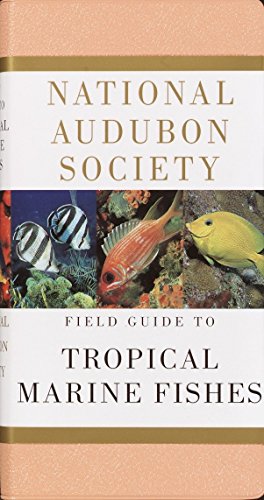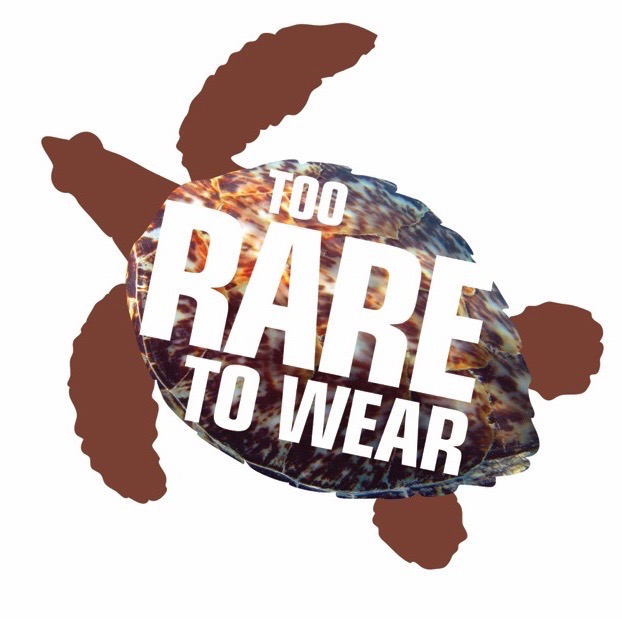This is Fun! Ecotourism is a Family Affair at Ceviche Tours
A Conversation with John Vater, Co-Founder of Ceviche Tours
ANNA AGUIRRE WELCOMES GUESTS ABOARD FOR A FABULOUS (AND RESPONSIBLE) WHALE SHARK ADVENTURE AT ISLA MUJERES, MEXICO. IMAGE: JOHN VATER AND CIVICHE TOURS
Roberta's Notebook: John Vater and his wife Adriana had already had a decade's long love of Isla Mujeres and friends Luis "Cuco" Refugio Aguirre and his son Jesus, when hurricane Wilma made an entrance in 2006. The Aguirre family were commercial fisherman, but the fish were disappearing. Then Wilma damaged their boat and equipment. The Aguirre family was suffering. That's when the Vaters had an idea for a new and sustainable business. Together, the friends founded Ceviche Tours. The result is a great time for all of us, and good for the earth too.
Today, Ceviche Tours is dedicated to helping "preserve the (indigenous) culture, maintain the integrity and beauty of the surrounding marine environment ... and joins the worldwide effort to protect and preserve whale sharks." They are also dedicated to sharing the fun.
"For 30 Years We Witnessed Less & Less Work for the Locals"
Then Someone Noticed the Whale Sharks!
DURING THE YEAR JUVENILE WHALE SHARKS, LIKE THIS ONE COME TO FEED. ONCE A YEAR THE BIG ADULTS ARRIVE AND FESTIVAL TIME! IMAGE: JOHN VATER
✓ TRIP TIPS
Who: All Ages. Some activities age or ability dependent.
What: Viewing or swimming with whale sharks, sailfish & more.
When: Year round activities.
Where: Isla Mujeres, Mexico
How: Cancun airport, ferry to Isla Mujeres.
Why Responsible: Over fishing & over-hunted sharks lead to economic crash. The community turned to ecotourism & conservation. Most businesses locally owned.
A Whale Shark of a Recovery
Roberta: How significant are whale sharks to the Isla Mujeres economy?
John Vater: Isla Mujeres has always been a commercial fishing community with many of the locals dependent on killing sharks to sell as their means of supporting their families.
We have been coming to Isla Mujeres for 30 years and witnessed the environment change with less and less work for the locals. The summer months where the slow season with little or no tourism for the Isla till whale shark tourism took off.
Now the high season extends from the traditional winter months through till mid-September with as many as 1000 locals involved with whale shark tourism directly and the hotels and restaurants as well.
Editor's Note: John talks about Isla Mujeres' Annual Whale Shark Festival!
ISLA MUJERES FROM THE SKY. IMAGE JOHN VATER, CEVICHE TOURS.
Roberta: Do you have any idea what percentage of the Island’s people rely on marine/whale shark tourism for their livelihood?
John Vater: Isla Mujeres is a community whose economy is based on tourism, and sustainable ecotourism is the principal engine of the economy. Whether it is sport fishing*, snorkeling, diving, or blue-water adventures like swimming with the megafauna that inhabits the waters surrounding the Isla, the amazing diversity of life in the reefs, bays, and ocean surrounding the Island is the focus of all Islanders.
*Editor's Note: Ceviche Tours practices catch and release for many species & uses biodegradable dissolving hooks. Fish that break away will be hook and line free in a few days.
All Marine Life Begins in a Healthy Coral Reef
CORAL REEFS ARE MARINE LIFE NURSERIES. IMAGE: JOHN VATER
Roberta: John, what is the connection between the coral reef and whale sharks?
John Vater: The Mezoamerican Reef (System) contains the 2nd largest barrier reef in the world. It starts off Honduras and ends about 30 miles north of Isla Mujeres in an area called Cabo Catochi.
The reef is the nursery for the fantastic diversity of marine life in the area, home to rays, lobsters, corals, and 100's of species of fishes. The reefs attract migratory species that feed there and spawn in the area.
Whale Sharks feed (in the reef) on both the nutrient-rich plankton that blooms as the cold water comes up the continental shelf and mixes with the warmer Caribbean waters and on the spawn of the fish that come to the area to feed on the sardines and other bait fish that inhabit the area.
Creating a Multi-Generational Sea Change
ISLA MUJERA'S COASTLINE CONSISTS OF BOTH SANY BEACHES AND ROCKY SHORES. IMAGE: JOHN VATER, CEVICHE TOURS
Roberta: John, when did you become aware of the need for marine (or whale shark) conservation?
John Vater: Adriana and I have traveled for many years to South and Central America and Mexico, we love salt water and the marine environment. As the decline of commercial fishing and the changes in the marine environment became more and more evident, we became involved in conservation efforts and soon realized that the problems are worldwide.
This reality made us understand that the best way for our efforts to be impactful was to focus on one community. The major challenge that came to light immediately is that this is a multi-generational problem and will only be changed by educating the next generation.
THAT GREAT WHALE SHARK MOUTH CAN BE INTIMIDATING BUT THIS IS A GENTLE GIANT, IT IS FEEDING ON PLANKTON AND SPAWN. IMAGE: THANKS TO FRAZIER NIVENS CINEMATOGRAPHY
Making Whale Sharks More Valuable as Attractions than Food
John Vater: Sustainable environmental conservation can not just focus on trying to sustain marine habitat and marine life, but must also sustain the local population that has made its living from the seas.
By training fishermen to become ecotourism guides (the fishermen realize) that the creatures that they used to harvest to make a living are worth more alive as an activity that tourists will pay to experience than cut up and sold by the kilo.
SWIMMING WITH SAILFISH IS ALSO GREAT FUN. THE FASTEST SWIMMER IN THE OCEAN REACHES SPEEDS OF 68MPH (110KPH), BUT SAILFISH ARE IN RAPID DECLINE. STILL HIGHLY PRIZED BY SPORT FISHERMAN, THIS IS A CATCH AND RELEASE SPECIES FOR CEVICHE TOURS CLIENTS. BIODEGRADABLE, DISSOLVING HOOKS ARE USED. IMAGE: JOHN VATER, CEVICHE TOURS
Roberta: Can you explain a little about how your whale shark swimming adventures work? What equipment do we need?
John Vater: Regulations require that only 2 people are in the water at a time with a guide, so, on open boat tours with 10 (persons) per boat, you take turns in the water with 5 other groups of 2 people. This limits your time with the whale sharks. Private boats ensure that you and your group have all the time in the water and better interaction with the guide and the whale sharks. Also, a flotation device is required, but a wetsuit fits the regulations. We provide all the snorkeling gear you need, but your personal equipment will always fit better than the rental gear. Book early in your stay, so if poor weather comes in we can still have another day to get you out.
THREE GENERATIONS OF THE CEVICHE TOURS FAMILY WITH THE ISLAND'S TOURISM DIRECTOR, GUSTAVO RODRIGUES, WELCOME YOUR FAMILY TO ISLA MUJERES! IMAGE: THANKS TO ©JOHN VATER (BOTTOM, THIRD FROM LEFT)
Underwater Whale Shark Photography
Roberta: Many of our readers love taking wildlife photography. Wildlife is of course, somewhat unpredictable, what do you suggest for them?
John Vater: Private tours are the primary focus of Ceviche Tours, each season we host many professional underwater photographers and media outlets to film whale sharks and manta rays. Anyone wanting to shoot is advised to book for several days to ensure there is time to interact with the whale sharks and to acclimate to their behaviors. The best experience is to do a private tour.
Roberta: Thank you, John! A private tour sounds like a great opportunity for families and small groups of friends - and certainly for marine photographers.
UNDERSEA ACTION AS A SMALL SCHOOL OF FISH TURN INTO A BAITBALL, THE SAILFISH SEES LUNCH AND A SWIMMER MOVES IN FOR THE SHOT. IMAGE: JOHN VATER
Roberta: How does Ceviche Tours ensure responsible wildlife experiences?
John Vater: Almost all the members of Ceviche Tours are our "Island Family." Captain Luis “Cuco” Refugio Aguirre and his son Captain Jesus Aguirre with their wives Elena and Anna run the company and Cuco’s brothers and nephews, nieces and cousins work with the company. They are all Islanders and represent three generations of locals with a commitment to preserve the beauty and culture of Isla Mujeres.
GOOD FUN, GOOD FOOD, GOOD FAMILY! CO-FOUNDERS JOHN VATER AND CAPTAIN LOUIS "CUCO" AGUIRRE SHOW THUMBS UP WITH THEIR WIVES ADRIANA AND ELENA, SON JESUS, JOHN'S NEPHEW ANDRE AND THE KIDS AT A MULTY-GENERATIONAL, INTERNATIONAL CEVICHE FAMILY MEAL. IMAGE: THANKS TO JOHN VATER AND CEVICHE TOURS
Roberta: John, what do you want your guests to take away after an experience with whale sharks?
John Vater: Isla Mujeres is the perfect destination for couples and families to Stay and Play the Isla Mujeres Way!! This is our new promotion for Ceviche Tours, and it was just adopted by the Isla Mujeres Hotel Association, the Island is much more than a day-cation destination, it is the perfect stay-cation destination.
UNTIL RECENTLY THE COMMUNITY OF 12,600 (2010 CENSUS) WHO CALL ISLA MUJERES, MEXICO HOME WERE MOSTLY FISHERMAN AND SHARK HUNTERS. NOW THE ECONOMY IS BASED ON SUSTAINABLE TOURISM. THE MAGNETISM OF MIGRATING WHALE SHARKS IS A PRIMARY REASON. IMAGE: JOHN VATER
Editor's Notebook: Real sustainable nature and wildlife tourism is a work in progress across all species and destinations, but Isla Mujeres is a community moving forward together toward that goal. Combine that with the warm sun, sensuous ocean, a plethora of flowers, birds and marine wildlife, great food, a fascinating culture, and and welcoming people and you come very close to paradise. Don't miss Isla Mujeres, Stay and Play the Isla Mujeres Way - you will have a great time!
Thanks John Vater, co-founder of Ceviche Tours for his help with this article and his belief in his friends and the whale sharks. Follow Ceviche Tours on Twitter and Facebook
More
It's Whale Shark Festival at Isla Mujeres
Mexico
Destination: Isla Mujeres
Mexico
Escape Winter! 8 Remarkable Places to Swim with Whale Sharks
Around the world with whale sharks







